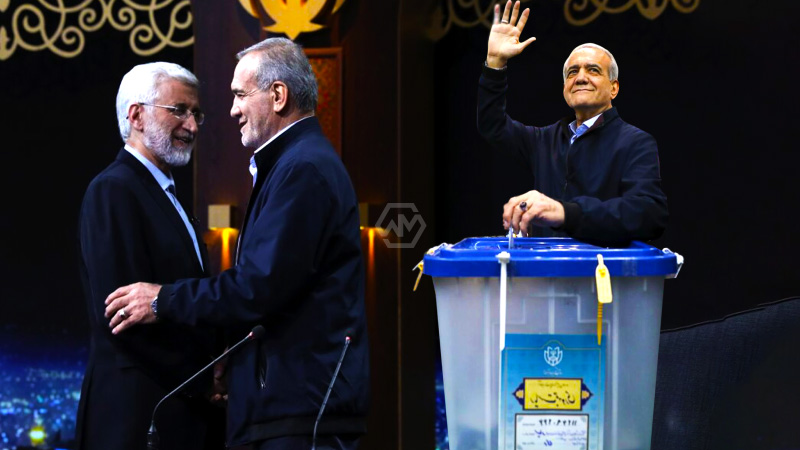- Candidates: Hard-line Saeed Jalili vs. reformist Masoud Pezeshkian.
- Context: Low voter turnout amid economic woes and regional tensions.
- Supreme Leader’s Role: Ayatollah Khamenei holds ultimate authority, but the president can influence policies.
The Iranian presidential runoff election presents a choice between hard-line former nuclear negotiator Saeed Jalili and reformist lawmaker Masoud Pezeshkian. Jalili represents a continuation of strict policies, while Pezeshkian offers a potential shift towards moderate reforms. This election follows the tragic death of President Ebrahim Raisi, adding uncertainty to Iran’s political future.
Voter turnout is a significant concern, with public apathy stemming from years of economic hardship and political unrest. Despite Supreme Leader Ayatollah Khamenei’s encouragement for participation, many Iranians remain disillusioned.
Iran’s Crucial Presidential Runoff: Future at Stake
The presidential runoff in Iran sees hard-line Saeed Jalili pitted against reformist Masoud Pezeshkian, each symbolizing vastly different futures for the country. Jalili’s tenure as a nuclear negotiator is marked by a firm stance against Western influence, appealing to those who support Iran’s current hard-line policies. In contrast, Pezeshkian, a heart surgeon and parliament member, represents the reformist camp, advocating for moderation and potential easing of tensions with the West.
Public enthusiasm for the election is notably low, reflecting widespread disillusionment with the political system. The initial round of voting saw record-low turnout, a trend likely to continue in the runoff. Calls for a boycott, including from Nobel Peace Prize laureate Narges Mohammadi, underscore the public’s growing frustration with limited political choices and ongoing economic struggles.
The election occurs amidst significant regional tensions, particularly with Iran’s involvement in the Israel-Hamas conflict. Iran’s direct military actions and its support for groups like Hezbollah and the Houthis have heightened Middle Eastern instability. Domestically, the country continues to grapple with the fallout from protests over Mahsa Amini’s death, with the regime’s response drawing international condemnation.
The role of the president, though ultimately subordinate to Supreme Leader Ayatollah Khamenei, is crucial in steering the country’s policies. While Khamenei retains final authority, the president can influence Iran’s approach to diplomacy and internal reforms. The outcome of this election will thus have far-reaching implications for Iran’s future direction, both domestically and on the world stage.
The Iranian presidential runoff between Saeed Jalili and Masoud Pezeshkian is not just a choice between two candidates but a pivotal decision on the nation’s trajectory. The result will shape Iran’s future policies, potentially altering its stance on both domestic reforms and international relations.
“The future depends on what you do today.”
– Mahatma Gandhi



